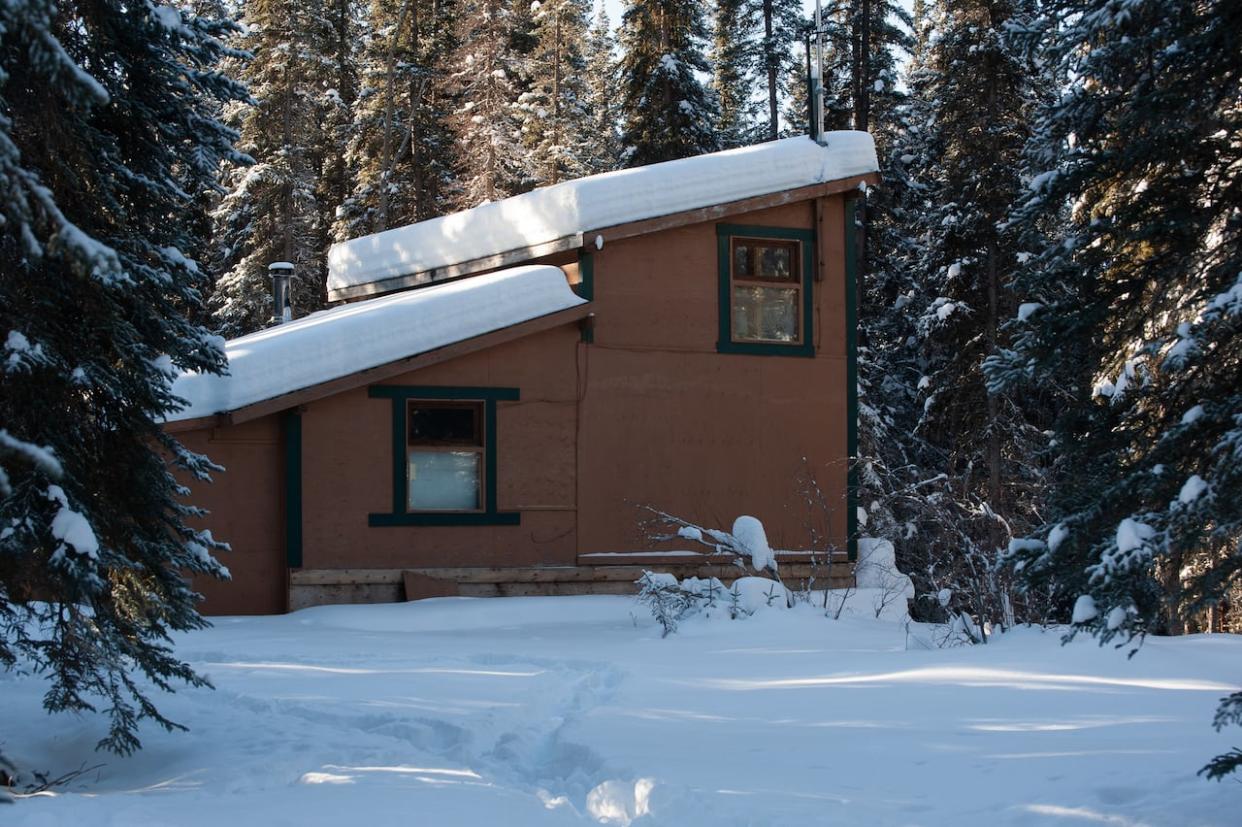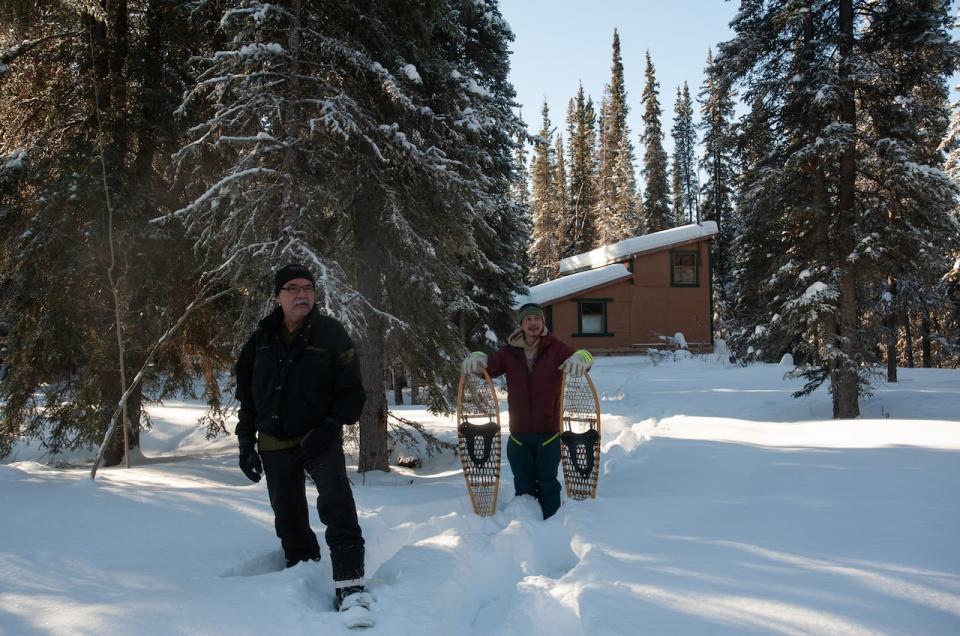Yukon gov't orders 2 cabins on placer claims dismantled

The Yukon government has ordered that two cabins built upon placer claims near Little Atlin Lake be taken down.
Citizens with the Carcross/Tagish First Nation say the cabins have long flouted the law — antiquated mining laws in desperate need of overhaul.
One of the cabins was two-storeys and complete with a foundation.
A government spokesperson confirmed a complaint was filed after the CBC News published a story about the issue last year.
The cabins were built in the late 1990s, before the territory's mining land-use regulations came into effect and before the Carcross/Tagish First Nation's 2005 final agreement.
Danny Cresswell, the First Nation's field operations manager, doesn't call them cabins. He considers them houses, and on land citizens have held in high esteem forever.
"That's a prime hunting ground, camping ground," he said. "I mean, you couldn't pick up a stone and throw it anywhere without hitting some kind of artifact within a few inches of it. The place is covered with [them]. "Somebody just staked a claim and turned it into a little playground.
"This little thing is a big thing, having this house being gone. I wish my grandparents were still alive and my mum, because they loved that area down there."

Danny Cresswell, left, and Niko Helm of the Carcross/Tagish First Nation snowshoe near one of the cabins a year ago. (Julien Gignac/CBC)
John Thompson, a spokesperson with Yukon's department of Energy, Mines and Resources, confirmed there are, in fact, two cabins on claims registered by the same person. Thompson confirmed that save for a foundation, both have been dismantled and removed from the site.
CBC News contacted the claim holder, but he declined comment.
In an interview last March, Jordan Lavigne told CBC News his family, from whom he inherited the claims, followed the rules.
'Indeed a breach'
Richard Potvin, with the territory's mines department, said the cabins are "indeed a breach."
"No permanent structures can be built or can't be on-site exceeding a 12-month period, so, in this case, this is primarily what we were dealing with," he said.
Permanent structures include cabins with foundations. Technically, that would be unlawful under a Class 1 notification — a permit for early level mineral exploration — regardless of the minimum amount of work required to keep the claims in good standing. To do that, the claim holder needs to do at least $200 worth of work, each year. Potvin said site visits showed little evidence of mining work, however.
"Our inspections of those are on a case-by-case basis and almost entirely based on complaints," he said.
"We do have a range of enforcement responses or provisions at our disposal, everything from issuing warnings to formal charges."
The claim holder has been cooperative and made quick work of dismantling much of the cabins, Potvin said.
Potvin said he's not aware of other examples in the region.
Cresswell suspects there are many other illegal cabins on placer claims in the Southern Lakes backcountry.
For now, Cresswell said it's good to have at least some closure.
Asked what will happen with the land now, he said the First Nation could hold culture camps for youth.
"That's a great spot right there," Cresswell said. "I imagine a lot of [citizens] would wanna come back to camp in there. Maybe a tent frame for the kids.
"My view on it, leave it the way it is."
The claim holder has until June to finish clearing the site.

